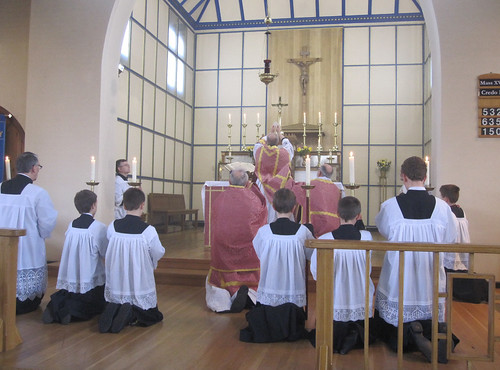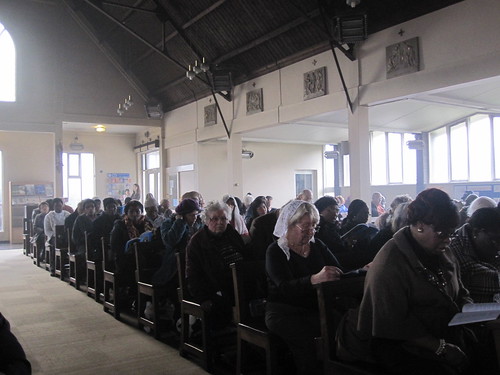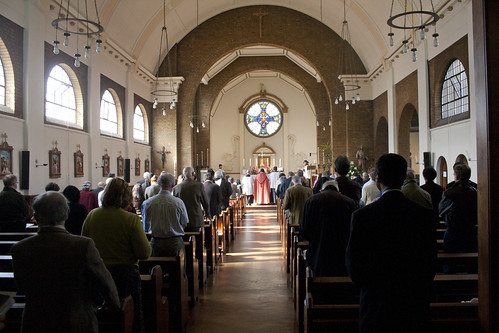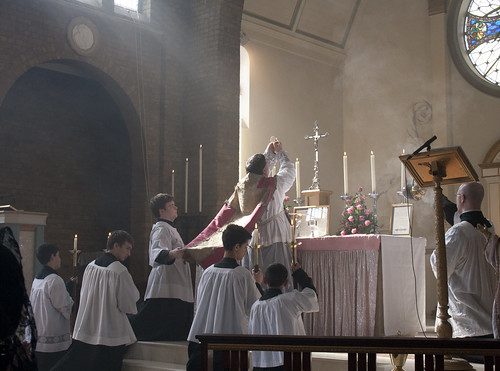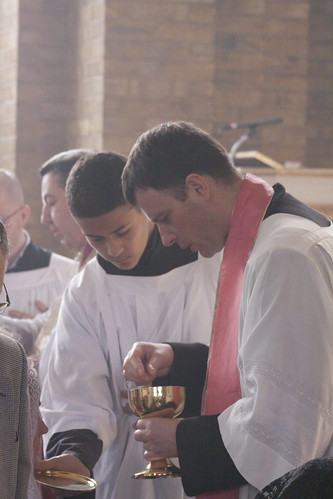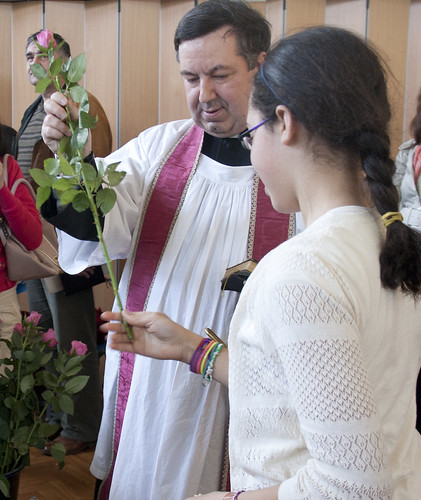SS. GREGORY & AUGUSTINE
MAY PROCESSION
Sunday 8th May 2011
3 p.m.
Procession & Crowning of Our Lady
Benediction of the Blessed Sacrament
Tea in the Presbytery garden
SS. Gregory & Augustine, 322 Woodstock Road, Oxford
01865 515138
SS. GREGORY & AUGUSTINE
MAY PROCESSION
Sunday 8th May 2011
3 p.m.
Procession & Crowning of Our Lady
Benediction of the Blessed Sacrament
Tea in the Presbytery garden
SS. Gregory & Augustine, 322 Woodstock Road, Oxford
01865 515138
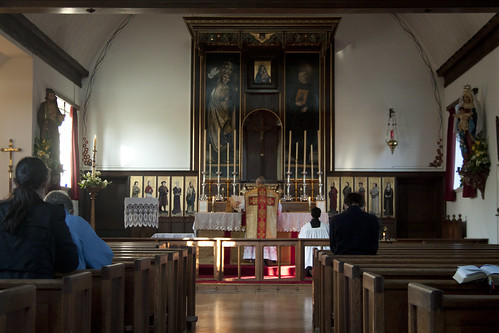
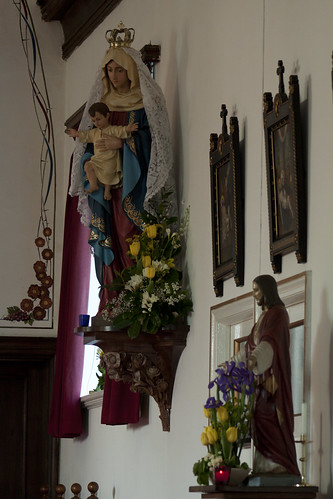
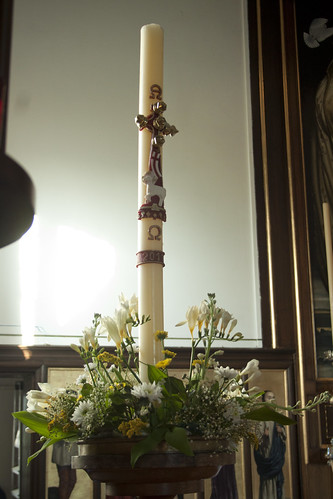
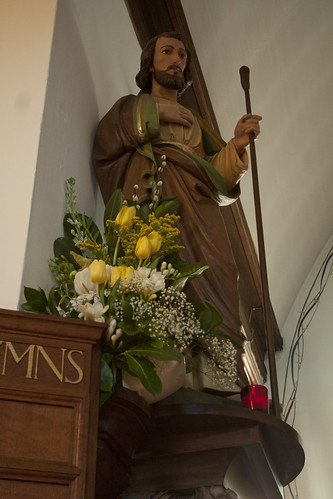
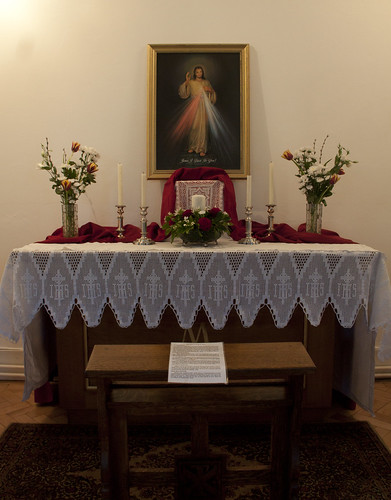
 There is a very interesting discussion of embryo adoption taking place on the blogs; I've put in my pennyworth here.
There is a very interesting discussion of embryo adoption taking place on the blogs; I've put in my pennyworth here.
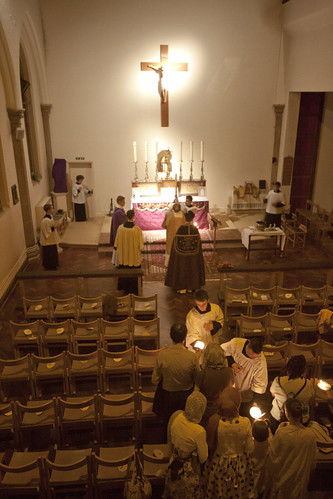
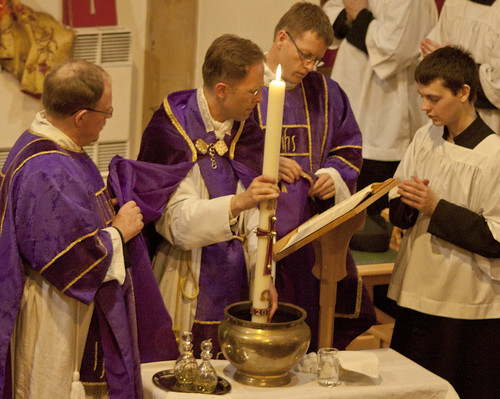
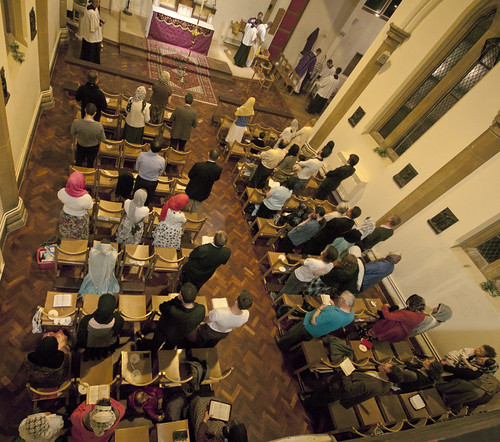
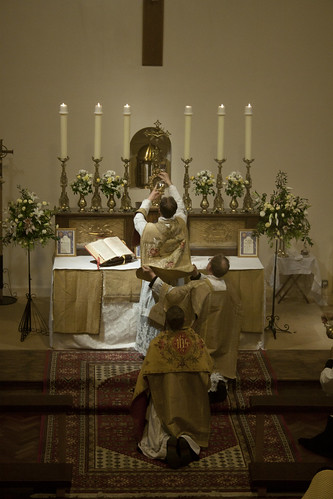

 "Bishop Thomas John Paprocki, Bishop of Springfield in Illinois, has asked that prayer cards with the Prayer to St Michael be placed in the pews of every church and that the prayer be said publicly at the end of every Mass before the recessional hymn."
"Bishop Thomas John Paprocki, Bishop of Springfield in Illinois, has asked that prayer cards with the Prayer to St Michael be placed in the pews of every church and that the prayer be said publicly at the end of every Mass before the recessional hymn."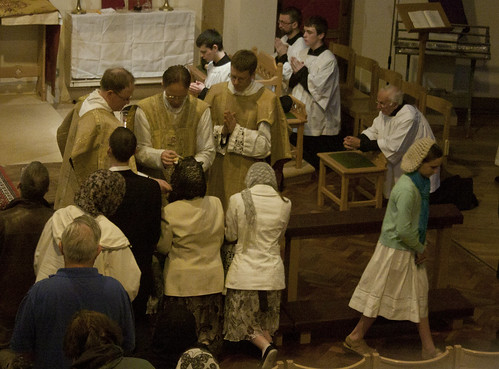
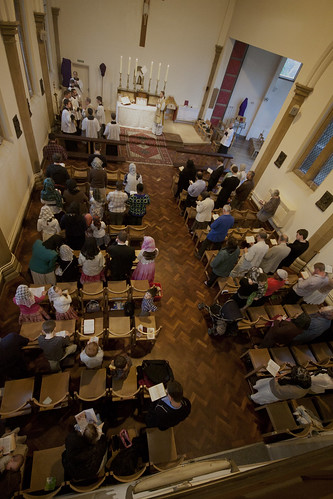
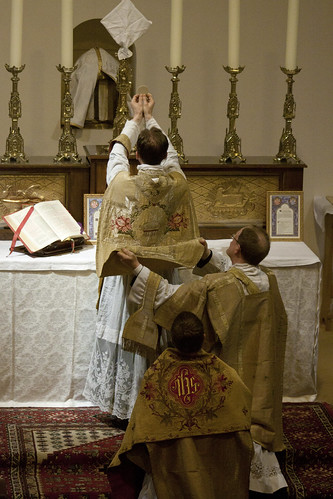
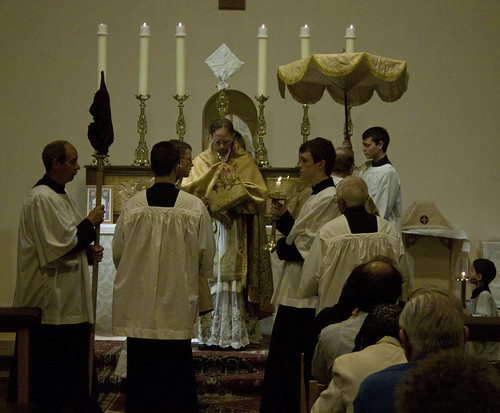
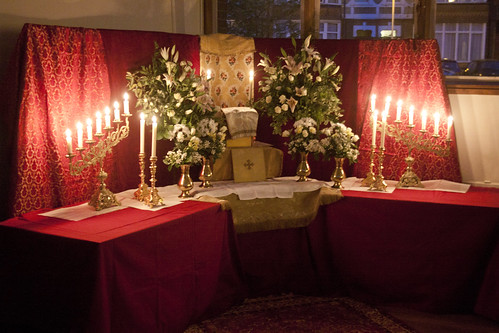
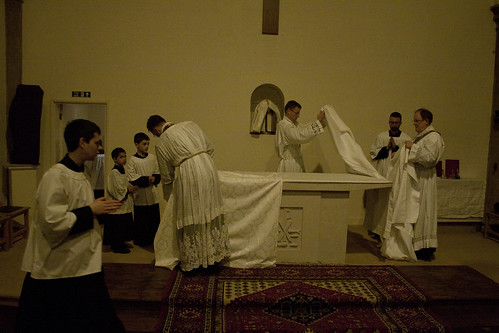
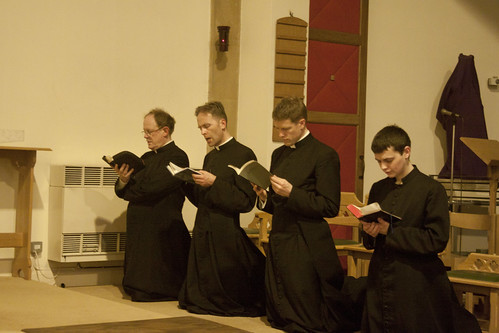

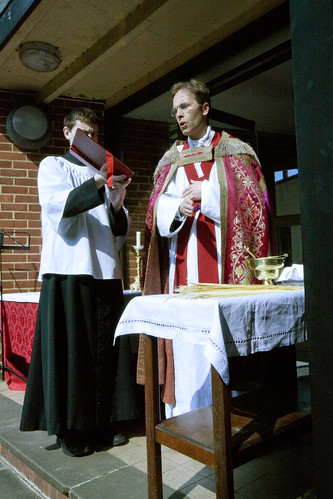
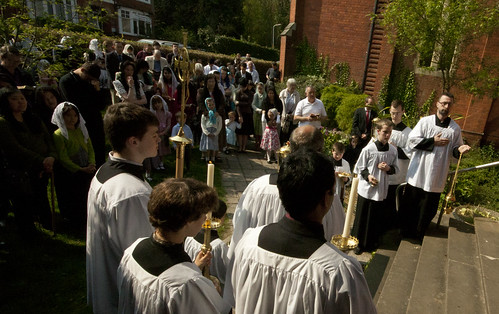
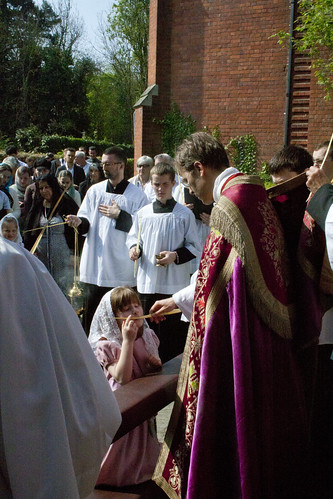
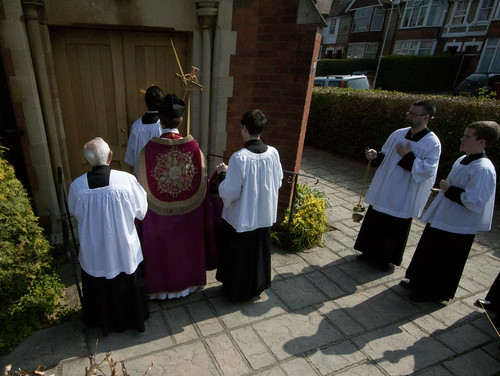
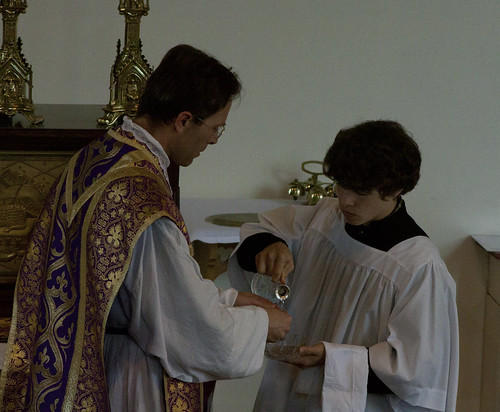
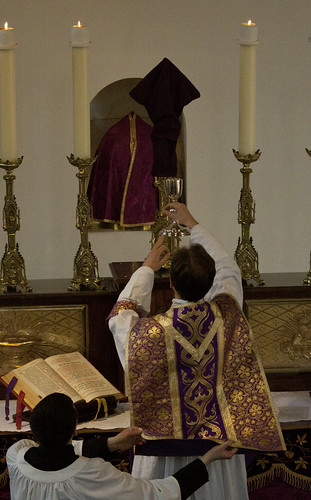
I've been asked to publicise this. You'll see it is supported by an impressive range of speakers, and by the FSSP and ICKSP.
The Association Youth and Tradition
And the Sodality Priestly Friends of Summorum Pontificum
Rome, 13-15 May 2011
Present
The Third Conference on the Motu Proprio Summorum Pontificum of
the Holy Father, Pope Benedict XVI
“Hope for the entire Church”
Programme:
Friday, 13 May 2011 (Pre-Conference)
Parish of SS. Trinità dei Pellegrini
17,00: Introduction and Welcome
Rev. Father Vincenzo M. Nuara O.P.
(Moderator of the Sodality Priest Friends of Summorum Pontificum)
Rev. Father Joseph Kramer F.S.S.P
(Pastor of the Personal Parish of SS. Trinità dei Pellegrini)
17,15: Holy Rosary and the chanting of the Litany of Loreto
18,00: Spiritual Conference: “Liturgy and Priestly Life”
Rev. Father Cassian Folsom OSB
(Prior of the Monastery of St. Benedict at Norcia)
19,00: Pontifical Vespers
Priests’ Consecration to the Immaculate Heart of Mary
Benediction of the Blessed Sacrament
(Officiating: His Excellency Most Rev. Athanasius Schneider,
Auxiliary Bishop of Astana)
(Service at the altar and music: The Priestly Fraternity of St. Peter)
Saturday, 14 May 2011 (Conference)
Pontifical University of St. Thomas Aquinas (Angelicum), Aula Minor
8,00: Holy Mass in the Church of Sts. Domenic and Sisto at the Angelicum
9,00: Chanting of the Veni Creator
Welcome and Introduction
Dr. Angelo Pulvirenti
(President of the Association Youth and Tradition)
Rev. Father Vincenzo M. Nuara O.P.
(Honorary President of the Association Youth and Tradition)
Commemorative Video Presentation
(Dr. Emanuele Pressacco)
9,30 1st Paper:
The Sacred Liturgy, Life of the Church
His Eminence Antonio Cardinal Cañizares Llovera
(Prefect of the Congregation for Divine Worship
and the Discipline of the Sacraments)
10,15 2nd Paper:
Spirit of the Liturgy, Liturgy of the Spirit
His Excellency Most Rev. Marc Aillet
(Bishop of Bayonne, France)
11,00 Break
11,30 3rd Paper:
The Ancient Liturgy of the Church: Ecumenical Bridge
His Eminence Kurt Cardinal Koch
(President of the Pontifical Council for the
Promotion of Christian Unity)
12,15 4th Paper:
The Minor Orders and holy service at the Altar
His Excellency Most Rev. Athanasius Schneider
(Auxiliary Bishop of Astana)
15,00 Recitation of the Holy Rosary
15,30 A perspective:
The Motu Proprio Summorum Pontificum,
assessment and possibilities
(Mons. Guido Pozzo, Secretary,
Pontifical Commission “Ecclesia Dei”
16,00 5th Paper:
The Episcopate in the Roman Pontifical (from the editio princeps 1595-96 until the editio typica of 1961-62). A theological liturgical reflection.
(Mons. Nicola Bux, Teological Institute of Bari)
17,00 Break
17,30 6th Paper:
The apostolic-patristic origins of the “Tridentine Mass”
(Sr. M. Francesca of the Immaculate, F.I. of Città di Castello)
18,15 7th Paper:
Latin, liturgical language of the Church and of Catholicity
(Prof. Roberto de Mattei, European University of Rome)
Concluding Remarks: Rev. Father Vincenzo M. Nuara, O.P.
19,00 Chanting of the Te Deum
and Benediction of the Blessed Sacrament
(Officiating: His Eminence Dario Cardinal Castrillon Hoyos,
President Emeritus of the Pontifical Commission “Ecclesia Dei”)
(Service at the altar and music: Franciscans of the Immaculate)
Sunday, 15 May 2011
The Papal Basilica of St. Peter at the Vatican
Altar of the Chair
8,00
Pontifical Mass at the Faldstool in the Ancient Roman Rite
(Celebrant: His Eminence Antonio Cardinal Cañizares Llovera,
Prefect of the Congregation for Divine Worship
and the Discipline of the Sacraments)
Assistant Priest: Rev. Father Almir De Andrade, F.S.S.P
Diacono: Rev. Father Mark Withoos
Subdeacon: Rev. Mons. Patrick Descourtieux
(Officials of the Pontifical Commission Ecclesia Dei)
Familiari: Mons. Nicholas Thevenin – Mons. Marco Agostini
Master of Ceremony: Rev. Father Gilles Guitard, I.C.R.S.S.
Liturgical Functions: Institute of Christ the King, Sovereign Priest
Musical Services:
Gregorian Choir: Pontifical Institute of Sacred Music in Rome
Directed by Maestro Mons. Renzo Cilia
Polifonia: Domenico Bartolucci Foundation Choir
Directed by His Eminence Maestro
Domenico Cardinale Bartolucci
Organist: Maestro Andrea Buccarella
12,00
Regina Coeli of the Sovereign Pontiff His Holiness Pope Benedict XVI
in Piazza San Pietro
Liturgical and Organisational Notes for Holy Mass in St. Peter’s at the Altar of the Chair:
1. The Mass is expected to begin at 8,00am sharp.
2. Clergy, Religious and Seminarians who would like to assist at the Solemn Pontifical Mass should present themselves in the Sacristy of the Basilica no later than 7,30am.
3. The Solemn Procession will depart from the Sacristy at 7,45am
4. For the procession it will be necessary to observe the following order of precedence: Cardinals of Holy Roman Church, Archbishops, Bishops, Protonotary Apostolics, Canons of the Vatican, Prelates of the Roman Curia, Chaplains of His Holiness, Priests, Deacons, Religious, Seminarians.
5. Clergy, Religious and Seminarians are asked to wear the appropriate choral attire.
6. Their Eminences and their Excellencies, Archbishops and Bishops, who wish to assist in choir at the Solemn Pontifical Mass are kindly asked to make known their attendance by calling +39.06.698.81496.
Liturgical-Musical Programme of the Solemn Pontifical Mass:
The Gregorian Proper of Sunday III after Easter.
For the Ordinary, the Missa Papae Marcelli of Giovanni Pierluigi da Palestrina.
The Beginning: Giovanni Pierluigi da Palestrina, Terra tremuit
Main Procession: J.S. Bach, Preludio in Sol maggiore BWV 541
Offertory: Tomas Luis de Victoria, Ave Maria
J. S. Bach, Adagio in Do maggiore BWV 564
Communion: Giovanni Pierluigi da Palestrina, Sicut cervus
J. S. Bach, Liebster, Jesu, wir sind hier BWV 731
Domenico Bartolucci, O Sacrum Convivium
J. S. Bach, Liebster, Jesu, wir sind hier BWV 633
Domenico Bartolucci, Ave Verum
Finale: Domenico Bartolucci, Regina Caeli
Charles Gounod, Marcia Pontificia
TE DEUM LAUDAMUS
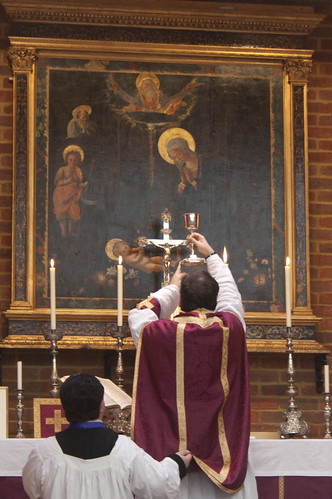
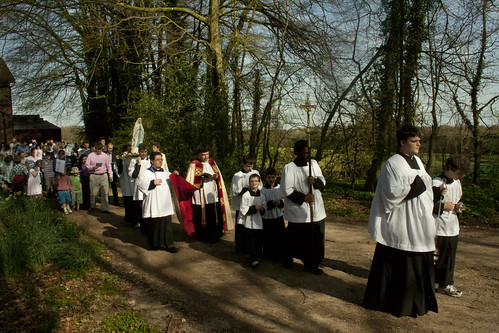
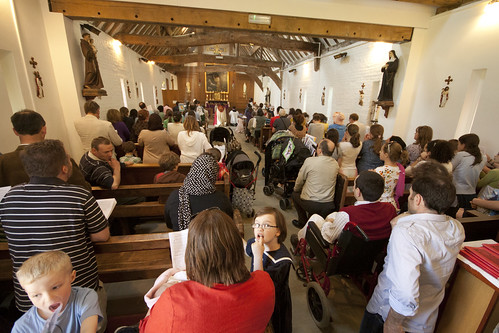
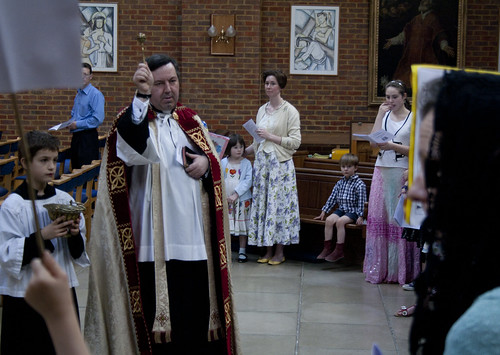
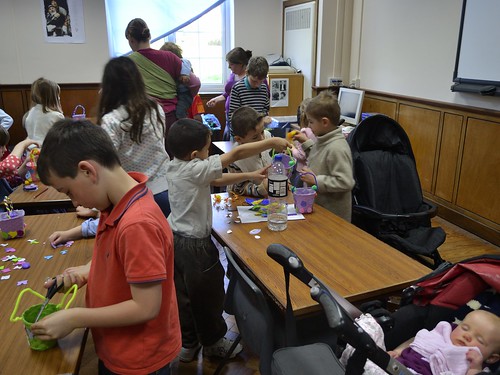
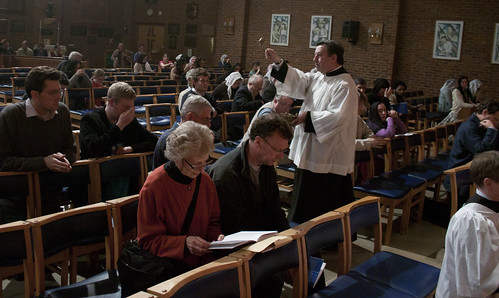
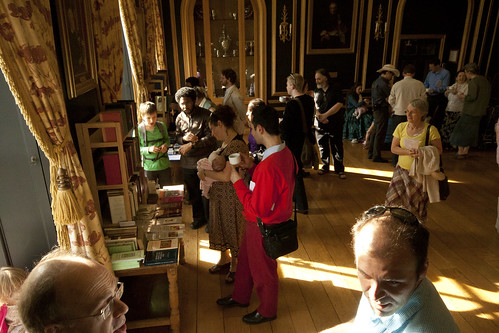
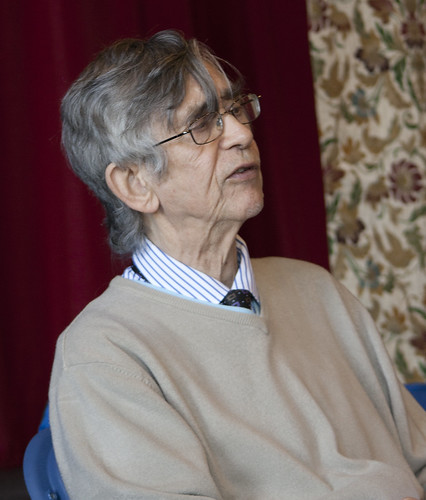
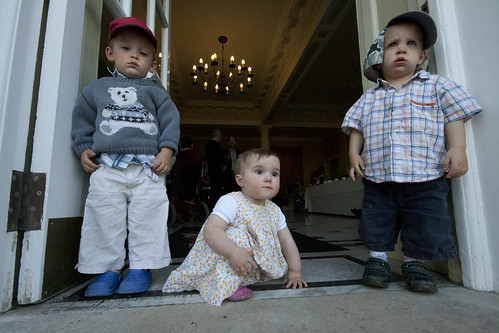
 Another Juventutem group has just launched. We now have
Another Juventutem group has just launched. We now have